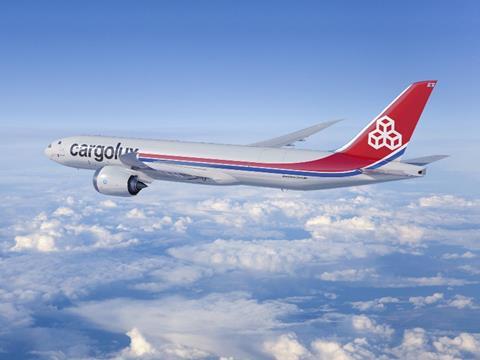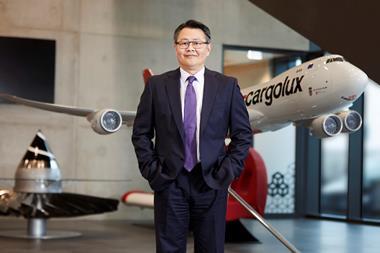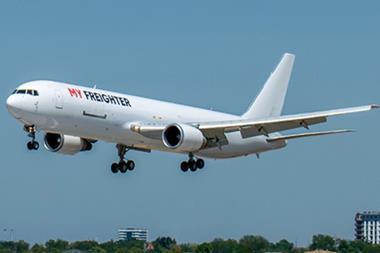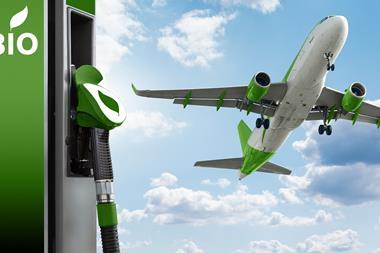
Cargolux has selected the B777-8F as the replacement for its ageing B747-400F fleet.
The carrier has for a long time been considering the future of its B747-400F freighter fleet as Boeing is due to end production of the model later this year.
However, at the Farnborough Air Show the carrier revealed that the recently-launched B777-8F would be its "preferred solution".
At this stage, Cargolux has not confirmed how many of the aircraft it plans to order.
"With the 777-8 Freighter being the preferred solution to replace our 747-400s, Cargolux is looking forward to continuing its ongoing relationship with Boeing," said Richard Forson, president and chief executive of Cargolux.
The B777-8F has a range of 8,167 km (4410 nautical miles) and a maximum payload of 118 metric tons, which Boeing said is in line with the B747-400F.
However, it does not offer the nose-loading capability of the production B747F.
In a recent interview with Air Cargo News, Forson said the airline had been considering both the B777-8F and its rival A350F.
“We are evaluating both aircraft at this stage in terms of how it will perform on the network we currently operate and our business model, which is to get the maximum utilization out of these aircraft," he said.
He made the point that the Boeing 747 is very big freighter, whereas both the B777-8F and the A350F are smaller and are not nose-loading. The biggest advantage of the B747 is its nose -loading capability but also the weight of single pieces it can carry and the dimensions of cargo it can accommodate.
There are certain loads carried today on the B747 that neither of those replacement aircraft will be able to transport.
Forson said: “I already have some customers raising the question about what will happen when all the B747 freighters are on the ground and how are they are going to transport their goods by air?
“From my side, I would like to be able to retain several B747s in my fleet going past their exit-by dates and keeping them serviceable to provide customers with the kind of capacity they require.
“Cargolux will be able to offer a unique product in the market for cargo that operators of the new generation freighters, the B777F and the A350F, will not be able to handle. Our aircraft will be used for special missions for those clients who require that kind of capacity.”
Forson added: “That said, I will need to replace a certain number of my B747-400 fleet. The B747-8F fleet is expected to operate until the 2040s and the typical lifespan of the freighter, depending on how you maintain and utilise it, is probably between 20 to 25 years.
“But I can stretch that out provided I have the necessary spare parts and the maintenance ability for overhauling our fleet of 747-8Fs.”
Stan Deal, president and chief executive of Boeing Commercial Airplanes, said: "With the selection of our newest freighter as their preferred solution, Cargolux continues its long and enduring history with Boeing, integrating the 777-8F seamlessly into the airline's all-747 cargo operations.
"With its investment in the 777-8 Freighter, Cargolux will operate the most advanced, fuel-efficient, twin-engine freighter in the industry. The 777-8 Freighter significantly reduces CO2 emissions compared to previous models with a reduced noise footprint, helping to advance Cargolux's commitment to sustainable operations."
Boeing launched the 777-8 Freighter in January and has booked more than 50 orders for the model.
Qatar Airways as the launch customer, ordered 34 of the aircraft with options for a further 16 in a deal that is valued at more than $20bn based on list prices.
Also, Ethiopian has signed a Memorandum of Understanding for five of the model, Lufthansa seven and ANA Cargo two.
Cargolux is the largest operator of Boeing widebody freighters in Europe with a total fleet of 16 B747-400Fs and 14 B747-8Fs.















